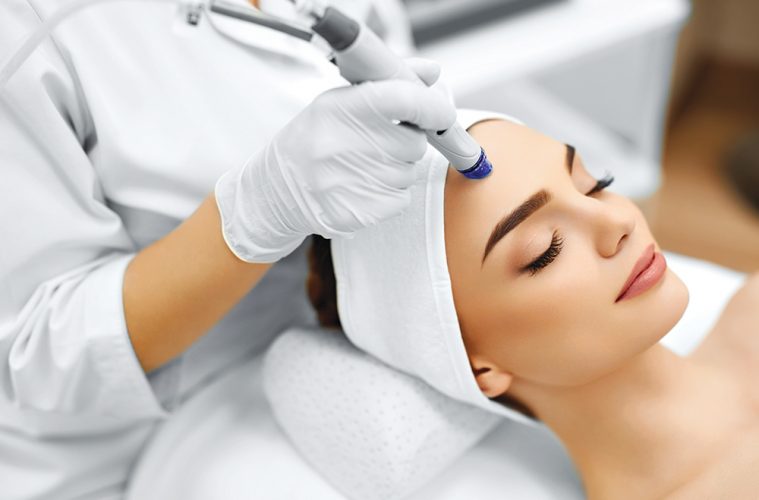Why You Should Consider Acne Prevention Recommended by Experts

Acne is more than just a cosmetic concern; it’s a condition that affects millions of people worldwide, disrupting not only the appearance of the skin but also one’s self-esteem and confidence. From the occasional pimple to persistent cystic breakouts, acne manifests in various forms, but the root causes often remain consistent: hormonal fluctuations, excess sebum production, clogged pores, and inflammation. While many opt for quick fixes when an outbreak occurs, acne prevention recommended by experts can offer a more effective and sustainable approach, reducing the frequency and severity of breakouts in the long term.
Acne prevention is not merely about fighting pimples after they appear—it’s about taking proactive measures to maintain clear, healthy skin before blemishes form. This approach aligns with expert advice and focuses on establishing skincare habits that support the skin’s natural defenses while addressing the underlying factors that contribute to acne. In this article, we will explore the reasons why you should prioritize acne prevention, how expert-backed methods can lead to better skin health, and what you can do to integrate these practices into your daily routine.
The Long-Term Benefits of Prevention
Acne treatment often focuses on clearing up existing breakouts, but this reactive approach can feel like an endless cycle—treating one pimple while another forms. Preventing acne, however, allows for longer-lasting results and helps to minimize the frequency of breakouts altogether. By taking steps to address the root causes of acne before they manifest on the surface, individuals can achieve smoother, healthier skin without the constant battle of treating flare-ups. This proactive method doesn’t only benefit the skin but also reduces the mental and emotional toll that acne can take on one’s self-image.
The long-term benefits of acne prevention go beyond the cosmetic improvements. When acne is actively prevented, the risk of scarring is reduced. Severe acne, particularly cystic types, can leave behind dark spots or even permanent scarring. By maintaining a routine that prevents breakouts from occurring, individuals can avoid the need for more aggressive treatments or corrective procedures later on, such as laser therapy or chemical peels.
Expert Recommendations: The Science Behind Acne Prevention
When it comes to preventing acne, experts emphasize understanding the science behind the condition. Acne is a multifactorial disease, meaning multiple factors contribute to its development. These include hormonal changes, genetic predisposition, environmental factors, and lifestyle choices. Dermatologists and skincare professionals have a deep understanding of these elements, and their recommendations are designed to address these underlying causes to prevent acne from forming in the first place.
-
Regulating Oil Production: Excess oil production, or sebum, is one of the primary causes of acne. The sebaceous glands, located in hair follicles, produce sebum to lubricate the skin. However, when these glands become overactive, sebum can mix with dead skin cells and clog pores, leading to the development of acne. Experts recommend using skincare products that help regulate oil production without over-drying the skin. Ingredients like salicylic acid, niacinamide, and retinoids are commonly recommended because they help reduce excess oil and promote healthy cell turnover.
-
Maintaining Clean Pores: Clogged pores are another major cause of acne. Dead skin cells, dirt, and impurities can accumulate within hair follicles, creating an ideal environment for bacteria to grow. Proper cleansing is essential to removing these impurities and preventing acne. However, over-cleansing or using harsh scrubs can strip the skin’s natural barrier, exacerbating acne and causing irritation. Experts suggest gentle cleansers with mild exfoliating properties, such as those containing alpha-hydroxy acids (AHAs) or beta-hydroxy acids (BHAs), which help to clear pores without damaging the skin.
-
Targeting Bacterial Growth: Propionibacterium acnes, the bacteria that naturally lives on the skin, plays a significant role in acne formation. When pores become clogged, these bacteria proliferate, leading to inflammation and the development of pimples. Topical treatments containing benzoyl peroxide, a proven antimicrobial agent, help reduce bacterial overgrowth and decrease inflammation. These treatments, when used regularly, can significantly lower the chances of developing new breakouts.
-
Balancing Hormones: Hormonal fluctuations, particularly during puberty, menstruation, pregnancy, or stress, are another key factor in acne development. Androgens, male hormones that are present in both men and women, can increase the size and activity of sebaceous glands, leading to an overproduction of sebum. While it can be challenging to control hormonal imbalances, experts suggest using hormonal treatments or birth control methods in some cases to help regulate acne triggered by hormonal fluctuations.
-
Sun Protection: Although exposure to the sun does not directly cause acne, it can worsen the condition. Sunscreen is vital in preventing acne scars from becoming darker and more noticeable. Additionally, certain acne medications, such as retinoids or benzoyl peroxide, can increase the skin’s sensitivity to the sun. Experts strongly recommend incorporating a broad-spectrum sunscreen with SPF 30 or higher into your morning routine, ensuring your skin is protected from UV damage while also preventing further skin complications.
Expert-Approved Lifestyle Adjustments
While skincare products and treatments are essential components of acne prevention, experts emphasize that lifestyle changes also play a significant role in maintaining clear skin. Several everyday habits and factors can exacerbate acne or contribute to its development. Here are some expert-approved lifestyle adjustments to consider:
-
Diet: Research has shown that certain dietary habits can influence acne severity. Diets high in refined sugars, dairy products, and high-glycemic foods have been linked to an increased risk of acne. Foods that spike insulin levels may trigger hormonal changes that stimulate sebum production. Experts recommend consuming a balanced diet rich in whole foods, such as fruits, vegetables, lean proteins, and healthy fats, to help support healthy skin from the inside out.
-
Stress Management: Stress is a known trigger for acne flare-ups. When stressed, the body produces cortisol, a hormone that can stimulate the sebaceous glands to produce more oil. To manage stress, experts recommend incorporating relaxation techniques into your routine, such as meditation, yoga, deep breathing exercises, or regular physical activity.
-
Sleep Hygiene: Poor sleep can affect the body’s ability to repair and regenerate, including the skin. Lack of sleep increases the production of cortisol, which, as mentioned earlier, can worsen acne. Prioritizing good sleep hygiene by maintaining a regular sleep schedule, reducing screen time before bed, and ensuring a calm sleep environment can positively impact your skin’s health.
-
Hands-Off Approach: One of the most common habits that exacerbate acne is touching or picking at the skin. This not only introduces bacteria to the surface but can also cause scarring or further inflammation. Experts recommend resisting the urge to touch your face, and for individuals with acne-prone skin, it’s vital to avoid popping pimples, as this can worsen the problem.
Conclusion: The Value of Prevention
Acne prevention is a vital step in achieving and maintaining healthy, clear skin. While it may be tempting to treat breakouts only when they occur, expert recommendations emphasize that preventing acne in the first place is both more effective and beneficial in the long run. By addressing the underlying causes of acne, such as excess oil production, clogged pores, bacterial growth, hormonal fluctuations, and sun exposure, individuals can achieve lasting results. Additionally, by integrating expert-backed lifestyle habits, such as a balanced diet, stress management, and proper sleep, you can further support your skin’s health and minimize the risk of future breakouts. Rather than battling acne after it appears, taking a proactive approach to acne prevention will lead to clearer, healthier skin and a greater sense of confidence.









